When I was younger, I often felt self-conscious and socially awkward. In fact, one of the reasons I wanted to become a Behavioral Scientist was to be better socially.
If you often feel anxious and embarrassed, this guide is for you. It will give you the tools you need to be more relaxed in social settings, get out of your head and into the conversation.
This guide is for anyone who’s feeling overly self-aware, but examples are geared toward adults in work or at college.
Note: Sometimes, the underlying reason for self-consciousness is social anxiety. If this is the case for you, here’s our list of the best books on social anxiety.
Let’s get started!
1. Focus on someone or something
Self-consciousness comes from being overly concerned with how people see us. We worry that we won’t be seen as smart, attractive, or that others are judging us.
It can be exhausting, and with too little evidence to support the argument in either direction, we go straight to the most negative conclusion.
To get out of this pessimistic mindset, try shifting your attention to the people around you and your environment.
Focus not on what others think of you but on learning about the people you’re with. Make it a point to find out one thing about every person you meet. It could be their job, their major, or what they did on the weekend.
The objective is to get out of your head. Put that energy into the people around you rather than into feeding an inner dialogue that’s holding you back.
2. Question your inner critical voice
It’s easy to believe the negative voice inside our head is always right. But have you tried questioning it? You might find out that it has little to do with what’s real.
Check the evidence from your life:
Can you recall a time you did something that proves your inner critic wrong? For example, if your voice says, “I always mess up around people,” remind yourself of a time when you did just fine.
Ask yourself if what you are feeling is reasonable. Or, are you letting a perception you think others have of you, run the story in your head?
3. Know that people notice you less than you think
In an experiment, students were asked to wear an embarrassing t-shirt.
By the end of the day, the students who wore the shirts estimated that 46% of the class had noticed. When polled, only 23% of their mates actually had.[1] In other words, their embarrassing t-shirt was only half as noticeable as they had thought.
What feels mortifying to us is usually having little to no impact on others. People are caught up in their own thoughts and struggles, too busy to worry about ours. The best thing we can do is remind ourselves that no one cares as much as we do, and even our own filter is not a perfect lens.
4. Know that it’s OK to say some stupid things
I remember talking to a girl I was crushing on when I was in high school. She was talking about how her brother liked a band, and like a crazy person, I said, “Ya, I know.” Like somehow, I knew what group her brother liked. My crush looked at me strangely but kept going.
Did it make any difference to my crush? Not really. At this point, I can laugh about it, but at the time it felt humiliating.
Try turning the tables on the situation. Would you care if someone blurted out something silly? Or would it just pass you by without giving it extra thought? It’s better to talk freely even if you say something stupid every once in a while. The alternative is to always guard yourself, and that can make you come off as stiff and aloof.
5. Don’t try to fight your feelings
Emotions tend to cling harder when we fight them and weaken when we accept them.[2]
When you are anxious, and feeling uncomfortable in a social setting, what are you thinking about? How does thinking about that make you feel? Happy, sad, nervous, jealous? What’s your body doing when you’re in your head and feeling awkward at a party? Are you sweating, jumpy, yawning a lot (a reaction to nerves)?
Simply accept how you feel rather than trying to change it.
Now focus outward. Talk to someone. Ask them how they’re doing. What brings them to this party/event? Do they know anyone? Then check your head. How do you feel when you’re talking to someone? Do you get any less nervous as the conversation goes on? If you were blushing, has it subsided yet?
Practice going back and forth between your inner thoughts and how you feel when you are talking to others. See if you feel better when you’re in your head, listening to your internal dialogue, or when you’re spending your energy on others.
6. Focus on your positive traits
This isn’t “think happy thoughts, and you’ll be fine.” Instead, you want to base your self-worth on your real, positive qualities rather than cynical and questionable self-talk. This is what we know is true:
- You have talents and abilities that give you fundamental value.
- This combination of characteristics makes you unique and memorable.
- You are worth spending time with and knowing.
Try to list your concrete skills like your mathematical ability, you’re a good writer, you’re multilingual, you’re a great cook. Then there are your personality traits. You’re kind, honest, genuine, funny, enthusiastic, etc.
Even if you can’t make a full list today, write one positive quality down every day and then review the list every week. When you have a comprehensive list, read it every day. You’re training your mind to focus on what you do well and to be able to access it quickly.
7. Make sure you’re reading the situation right
Negative experiences can teach us to be on guard and defend ourselves from criticism and hurt. This can affect how we perceive the world and the people we encounter.
Those of us who are overly self-conscious might believe the world will judge us harshly because that is what we’ve experienced. However, as I’ve pointed out, people don’t care that much about how we act or what we say. Every new person you meet thinks of you as a blank slate.
When you’re in a scary social situation, ask yourself, “Is there a chance my past experience is affecting how I’m seeing this interaction? Is there another, more realistic way I can approach his conversation?”
Believe people will be friendly, and most of the time, they will be. If not, it says more about them than you.
8. See yourself as a social observer
People watching is fascinating, and it shows us how our basic humanity makes us all messy, foolish, and funny. Go to the mall, grab a coffee/tea, and watch people walk with their friends. Listen in as they sit beside you and talk, or as they chase their kids down the hall.
Now notice their body language, their tone of voice, and eavesdrop on what they’re saying. What we’re doing is training you to switch your focus from yourself to others and to think objectively about what you’re witnessing.
Are people relaxed or stilted? Is their posture good, or are they slouching? When they talk, are they quiet, or does the volume go up and down with excitement? The more we see others being their imperfect selves, the more we’ll realize this is what ‘normal’ looks like.
Go into this observer mode when you walk into a room of strangers. It can help you be less self-conscious.
9. Assume that people will like you
This one is about the mechanics of being seen as confident rather than inhibited or self-conscious. When we feel uncomfortable, it can make us talk softer, hug our bodies with our arms, and speak faster to get the words out and move the focus off us as soon as possible. It can make us seem aloof, and even if we don’t intend to, it makes us less approachable.
Be confident and friendly right off the bat. Walk up to people with a warm smile and present yourself. If you’re uncertain about the details, look at how likable, confident people do it and learn from them. Assuming people will like you is a self-fulfilling prophecy. Assuming they won’t is, too.
10. Ask about others to take the focus off you
It’s easier to focus on someone else other than ourselves. When you meet someone for the first time, ask them what they do for fun. What are their hobbies, or do they have any pets? Listen carefully, nod, and give them signs that you are enjoying their story. Then add anything relevant that applies from your life. Things like your pets – what kind are they, their name, breed…or your hobbies. At the end of the day, you want to have a balance between learning about them and sharing about yourself.
The goal is to learn about someone else because it’s hard to be self-conscious when you’re focused on getting to know another’s interests and stories.
11. Make internal progress checks, not comparisons
Jealousy is a miserable emotion. It makes you feel small and worthless and sucks the joy out of everything. It’s like anger directed at someone else, but you are the one who feels crappy.
Avoid both overexaggerating someone else’s talents or trying to find flaws in them to make yourself feel better. No one is perfect, and tearing them down when you feel envious just retains the focus on you because you are still comparing yourself to someone else.
Here’s a thought: What if we were OK with the fact that someone is more accomplished than us? When we accept this, it helps us see ourselves differently.
Our value then has nothing to do with how successful we are or how good we are at something. We want to go from “I like myself because I’m good at…” to “I like myself.” (Period.) This makes our self-acceptance unconditional.
How do we accept that others are more accomplished than us and be OK with that? First, let that fact sink in, and allow all your emotions of envy and sadness to come to you. Accept those emotions rather than fight them. Now, you no longer need to fear them. Afterward, you will be less prone to comparisons.
Here’s another way to do it:
Instead of thinking, “Well, at least I’m better than them when it comes to X.” Say, “I’m not good at everything, which is OK because my value isn’t based on my achievements. I have value because I am 100% myself”.
Let’s talk more about how to be more self-accepting…
12. Practice accepting yourself
Self-acceptance is one of the biggest steps we take towards achieving self-confidence.
According to Aaron Karmin, MA, LCPC, a psychotherapist in Chicago, Ill, a person “who accepts [themselves] unconditionally as a worthwhile human in spite of [their] faults and imperfections does not experience the stress of self-consciousness.”.[3]
Here are some things you can do to accept yourself:
- Decide how you are going to live your life. Will you let others define your personal image, your strengths, and your weaknesses? Try to move from blame, doubt, and shame to tolerance, acceptance, and trust.
- Make a list of all your good points.
- What do you do well?
- What are you proud of accomplishing?
- Whose lives have you made better?
- Connections you’ve made with others.
- Hardships you have overcome.
Review the list often, so you see your progress and acknowledge your gifts.
- Take an inventory of the people close to you.
- Are they good for you?
- Do they reinforce negative self-talk?
- Do they criticize or demean you?
Consider eliminating all the negative influences in your life.
- Surround yourself with a positive support group of people who celebrate you.
- Forgive yourself. If you made a mistake, realize you did your best with the information you had at the time, or you simply made a bad choice. But now you chose to move on and forgive yourself.
- Silence your inner critic. Just because it’s hard to hear doesn’t mean it’s right or 100% true. If you wouldn’t talk to someone else like you speak to yourself, why is it OK to do it to you? You’re human like everyone else. Treat yourself as well as you treat anyone else, if not better.
- Move on from your unrealized dreams. You can’t change the past. All you can do is move forward and continue to pursue your current goals.
- Help yourself see how you make others’ lives better. It’s harder to see yourself in a harsh light when you acknowledge all the good you do.
- Let it go – You can’t control everything. It’s not resignation. It’s a realization that your energy is better spent elsewhere instead of railing against the things you can’t change.
- Try to solve your problems one at a time. First, step outside your head where all the worry and self-doubt resides. Take a dispassionate look at what you need to do to move past each issue. You could even try imagining that the problems you’re facing are someone else’s (if that helps you get away from your internal thoughts). Ask yourself what advice you’d give them (yourself) to help?
- Practice Self-compassion – accept your flaws and love yourself anyway. Simple words, but for most of us, it takes years, if not a lifetime to master this step. The more you do it, the better you’ll get in every respect.
- Even though you may not have much experience being kind and compassionate with yourself, you will start to believe these good things you’re telling yourself. Especially if you keep this positive internal monologue up. In many instances, it took years to get to this place of insecurity. It will likely take weeks and months to see progress and make permanent changes to your mental habits.
13. Practice thinking about other’s needs
Try doing thoughtful things for others. Consider their struggles, worries, dreams or regrets. When you do, you take the focus off yourself and you’ll connect with them. This will help you be less self-conscious.[4] It will also show others that you are caring, and you value them. Done selflessly, it will bring good things back to you.
Here are some suggestions:
- Smiling at someone after you meet them. It could be a friend, family member, or acquaintance. Let the smile happen as you talk to them, so they know you are smiling just for them because it grows after you say, ‘Hi.’
- Hold a door for someone.
- Give a spontaneous compliment.
- Bring a friend or co-worker cookies or a pre-made dinner if they are sick or need a pick-me-up.
- Pay it forward. Pay for the coffee or drive-thru meal of the people behind you.
- Keep your area tidy and organized if you work in an open-concept office.
- Send cards for different occasions or for no occasion at all.
- Give someone 100% of your attention and note what they say so you can follow up later. (Ask them how ‘it’ went. Make sure they are OK afterward.)
- Consciously spend a few minutes every day thinking of the things you are grateful for.
A word of caution: Do not do these things to gain others’ approval. That puts the focus back on you. Do it out of sincere consideration for others. The purpose of the exercise is to focus on others and their well-being. When you do, you’ll become more compassionate and less self-conscious.
14. Consider talking to a Therapist
If your self-consciousness is inhibiting you or is a result of social anxiety, a therapist can be helpful. Having social anxiety is more common than we think, and deciding to understand and address the effect it has on your life is brave. A Psychologist or a Therapist will help you talk through your feelings, find out where they originate from, and give you the tools to unpack them and move forward.
We recommend BetterHelp for online therapy, since they offer unlimited messaging and a weekly session, and are cheaper than going to a therapist's office.
Their plans start at $64 per week. If you use this link, you get 20% off your first month at BetterHelp + a $50 coupon valid for any SocialSelf course: Click here to learn more about BetterHelp.
(To receive your $50 SocialSelf coupon, sign up with our link. Then, email BetterHelp’s order confirmation to us to receive your personal code. You can use this code for any of our courses.)
You can also try contacting your insurance company or doctor for recommendations.
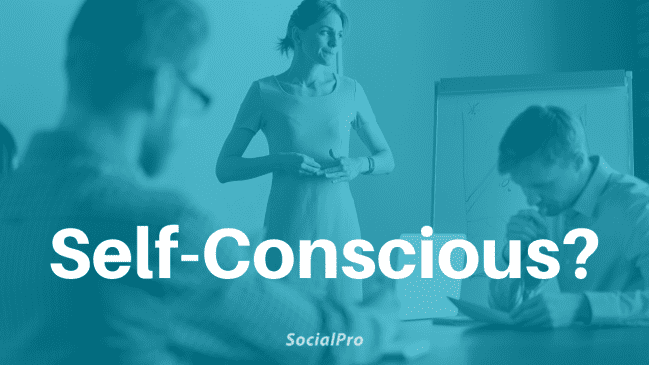





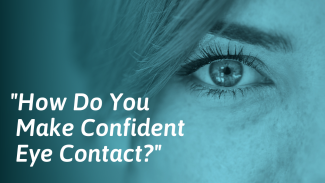

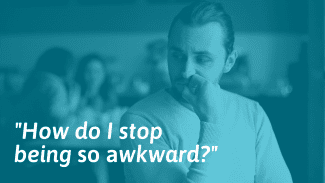

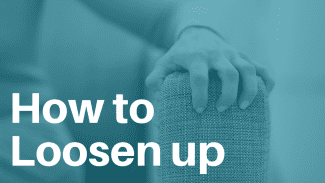
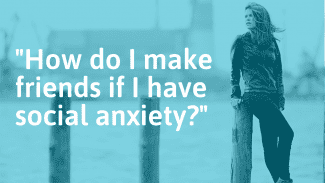
I have a problem speaking with strangers and I take so much time to accept a person to be in my life. From my childhood, most of my friends were very mean. Once I accept people as my best friend I will do anything for them (such as I will let myself down, Sometimes I don’t even care about my self-respect). Now got one best friend I have so much love, affection towards him but the issue is I am not able to take it when he is close with some other people. I know it’s not good for me and I am feeling very bad to be possessive about my friend. This kind of feeling hurts me each and every single day I am not to concentrate on daily activities (eating, sleeping, not feeling like talking with anyone and suddenly I will care). Now I am thinking to move away from him because day by day my health is getting worst and I don’t know what to do.
I’m afraid of people thinking I’m boring. I’m often described as a very quiet person but for some reason when people say that it really bothers me. I just want people to think I’m somewhat interesting.
You described perfectly what I get anxious about and that is forming my thoughts before I speak. I often have so much to say but will worry about my delivery of ideas before i even share which causes additional anxiety. The impact is that I may end of sounding confused or unclear.
I am afraid of how my activities will be perceived by others. If I laugh at something they say, my inner mind says that i am offending them even before they think. I always fear to laugh at social gatherings. Even if I laugh my mind comments you are laughing too much and loud. You will be thought as idiot. I fear of being losing that person’s friendship so going with what he say.
I used to feel like that a few years ago, but I could get rid of those thoughts by contemplating the “clown friends” and how lovely they are. Isn’t it nice to keep spreading positive vibes? If the clown friends are loved for laughing and making people laugh why can’t you be loved too?
I am afraid what I said might not be funny or I might be boring or I might be judged. And I can not stand being judged. It makes me feel inferior.
Sometimes, if the opposite person does not reply to me maybe cause he is thinking something else, it makes me feel ignored. Then I do not talk back
I am afraid that people won’t understand me or won’t even will like to talk with me cause I am so boring and quite.
I am afraid people will think me good for nothing and judge me as rude even if I make the slightest mistake in my speech or action or behavior. I am traumatized to the extent that I try to confirm what I write or say multiple times.
I’m afraid that everybody I talk to thinks I’m boring. I never have anything substantial to add to the conversation. When I do, I often don’t say what I really mean or feel or just cut it short because I think nobody cares and I’m just talking too much.
exactly same with me too
I feel the same and half the time I end up not saying anything.
I honestly can’t think of things to say and I’m scared other people think I’m rude because they have to carry the conversation or come up with all the questions to ask.
I am afraid of saying something ignorant and unintentionally offending the people around me. I think it ultimately boils down to a fear of rejection. I’m constantly tempering what I say to what I think people want to hear.
This is how I feel
I am afraid of rejection.
I am anxious that others will think that I am boring and not give me equal attention.
This was the first comment I saw when I opened this page. I feel like you’re speaking for me. Your thoughts echo mine precisely. Thanks for making me feel less alone on this one 🙂
I’m afraid of people thinking I’m weird or i talk about stupid things and won’t find me interesting so they cut the conversation super short.
I’m afraid that I will be judged regarding my interests, the way I look, the way I talk (I stutter and stumble over words a lot), being judged by different tics I have, and the biggest thing is that I’m scared to open up, and that the person will end up leaving me in the end.
I’m afraid of being judged for the way I look, the way I speak, the way I conduct myself and for what I believe in. I’m also afraid of being judged if I make a mistake.
I am afraid to not sound smart or cool enough, to make the situation awkward and be judged for that. But also sometimes I fear not being capable of holding a proper conversation and that the conversation may become very unpleasant.
I’m always afraid to say the wrong thing and never know how to make conversation longer I always cut it short and always been called dumb stupid pathetic and you name it and that where my quietness comes and l always blame everything on me
I am always afraid of being judged wrong
I worry if people will dislike the way I look. I also partly worry about whether I’ll say and do the right things. When I’m talking to someone, sometimes it feels like I’m an actor on a stage.
I am a weird strange person and need to express myself, but I’m afraid of being judged for being myself. So most times I am timid and shy and people don’t get to see who I truly am.
I generally resist immediately and become quite watchful yet camouflaged unobservable. It’s my stealth. The thing is I don’t know how to remove my invisibility cloak once I am wearing it.
It can then be very difficult to risk engagement.
I’m usually afraid of people judging me on my looks, I feel as if I’m not beautiful enough, my social stands. I don’t know if I’m alone in this or someone else is also going through the same thing
I get that.. I am from another country and my facial features make me stand out and that’s something I have tried to accept..that I look different. But that’s what makes us all unique. And no matter what you look like, the biggest thing that makes you attractive is your heart.
I fear people will say to me “why are you so quiet?”. That makes it worse!!
people have said this to me before and it does make it worse honestly but don’t let it get you down cause being quiet can be good at times.
Unless I am close to the people around me I will think too much about what other people must think if I said this or that. Fear that I will sound dumb or boring… Most of the time I end u saying nothing and feel like I am lost or invisible in that conversation. I Fear too much. I am shy too.
My worst insecurity was when I gave presentations to even small groups – and it got so bad I would feel like I was about to faint. One friend helped me seek help, then I saw a doctor who referred me to another. He helped a lot and fixed that problem. The problem originated from harsh treatment from my father when I was very young – he was very strict and controlling [I considered he was normal at the time]. I still have a range of insecurities in social situations and I’m still trying to sort that out.
I’m insecure about not being interesting or fun enough. I always feel like I don’t have anything smart/interesting to say so can’t contribute much to a conversation.
Sameeeeeeee i feel you 100%
I feel the same way every time:(
Exactly, same here
I feel 100% the same
My insecurity is when I talk I feel like people aren’t interested or they are judging my flow of talking. For this reason, I find myself overthinking in conversation.
I always feel like I should have my flow in speaking perfectly crafted or thought, I know it really shouldn’t, but now I am at the point where I feel I really can’t even go back on a single word which is nerve-racking, and that makes it even worst
I always run social situations over and over thru my head, especially if I have been talkative or opinionated about something. I always regret talking too much for fear of sounding dumb or like I don’t know what I’m talking about. After a big social situation, I can’t relax or go to sleep for running the whole evening’s conversations over and over in my head and kicking myself for how I said something or what I said ????.
I will try again
When I debrief with myself I try and remember who was there what they said that stimulated what I said, what was that look that gave me the impetus to keep talking, how was I feeling, was I ever relaxed, was I uptight was that relevant to what was going on.
Before I began this I was just so harsh on myself.
Its good to learn kindness for yourself Lisa
Iam afraud to be judged by my shape whether they like how I look or not